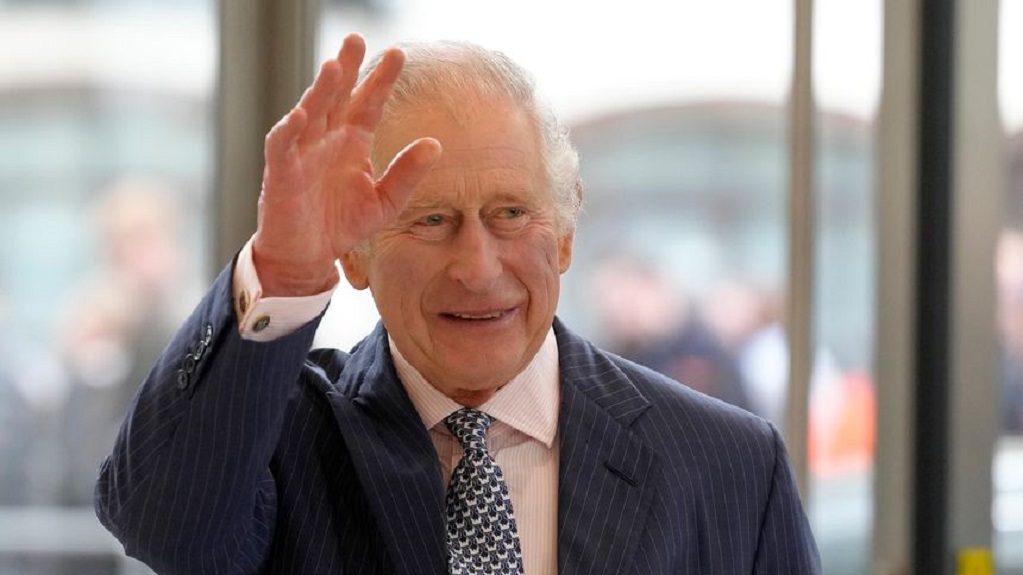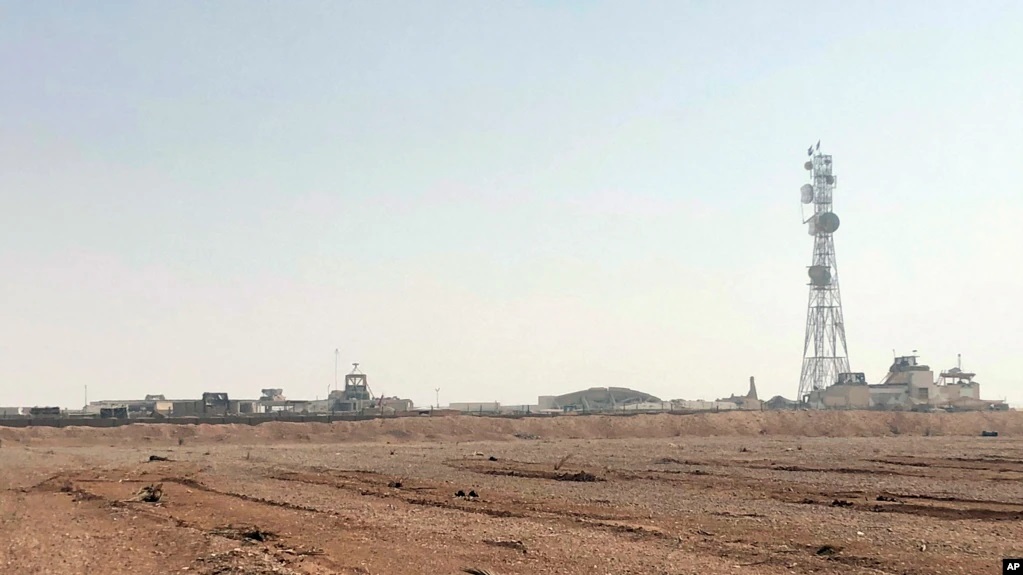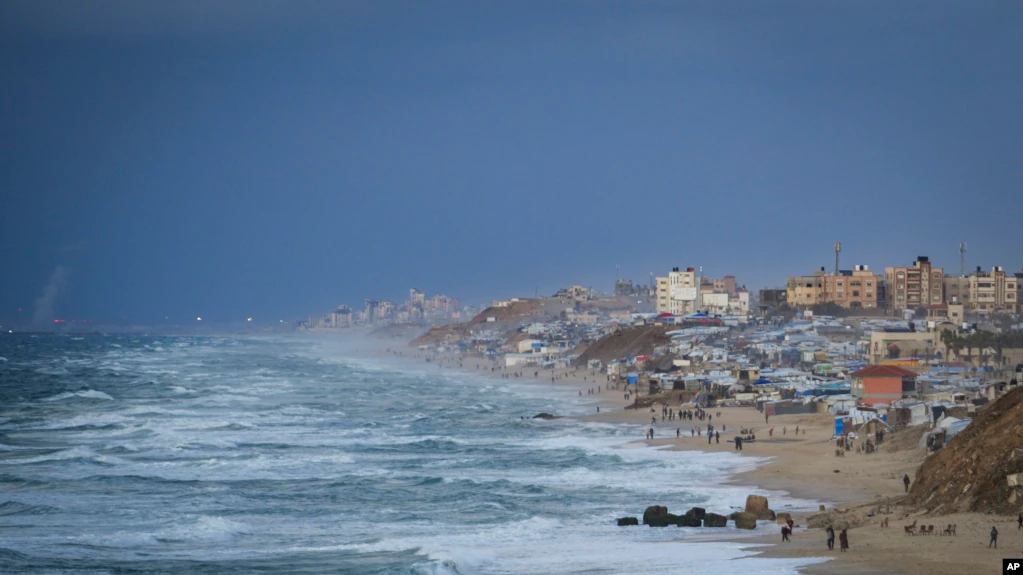US warns Israeli offensive in Lebanon could bring wider war, draw in Iran
Written by worldOneFm on June 24, 2024
U.S. and European officials are warning of the possibility of the war in Gaza expanding, with the prospect of an Israeli offensive in Lebanon against the Iran-backed Hezbollah militant group.
European Union foreign policy chief Josep Borrell told reporters Monday in Luxembourg that the risk of the war spilling over is growing bigger every day.
“I think that, unhappily, we are on the eve of the war expanding,” Borrell said.
He also said a cease-fire in Gaza is desperately needed to facilitate the flow of humanitarian aid, saying “delivery of humanitarian assistance inside Gaza has become impossible.”
Borrell’s comments came hours after the top U.S. military officer warned an Israeli offensive in Lebanon would raise the risk of a broader conflict that draws in Iran to aid Hezbollah.
Israel has been battling Iran-backed Hamas in its offensive in the Gaza Strip for months while also engaging in daily skirmishes with Hezbollah along the Israel-Lebanon border.
Air Force Gen. Charles Q. Brown, chairman of the Joint Chiefs of Staff, told reporters that Iran would be “more inclined to provide greater support to Hezbollah,” describing the militants as having more resources than Hamas.
Israeli Prime Minister Benjamin Netanyahu said Sunday that the “intense phase” of fighting against Hamas in Gaza will be ending “very soon.” But he added that Israel will likely shifts troops to the border with Lebanon.
In his interview with Israel’s Channel 14, Netanyahu said moving troops north would bolster the country’s defensive posture against Hezbollah and allow Israelis who fled the fighting near the Lebanon-Israel border to return home.
He added that while he hopes a diplomatic solution to the conflict with Hezbollah could be found, Israel can “fight on several fronts, and we are also preparing for it.”
The war in Gaza, and the risk of a wider conflict, will be the focus of talks Monday in Washington as Israeli Defense Minister Yoav Gallant meets with U.S. Secretary of State Antony Blinken and Defense Secretary Lloyd Austin.
“We are prepared for any action that may be required in Gaza, Lebanon, and in more areas,” Gallant said in a statement.
Postwar Gaza
While Netanyahu expects fighting in Gaza to wind down as Israeli forces conclude their offensive in Rafah, he stressed that Israel expects to have a military presence there for the foreseeable future.
“We also want to create a civilian administration, if possible, with local Palestinians and maybe with external backing from countries in the region to manage humanitarian supply and later on, civilian affairs in the [Gaza] Strip,” he said.
Netanyahu reiterated his opposition to either Hamas or the West Bank-based Palestinian Authority having a role in managing Gaza.
The U.S. has previously cautioned Israel against a long-term military occupation of the territory.
U.S. arms shipments
Earlier Sunday, Netanyahu said he believes a dispute with the United States over the pace of its arms shipments to Israeli forces fighting Hamas militants in Gaza would be resolved soon.
“About four months ago, there was a dramatic drop in the supply of armaments arriving from the U.S. to Israel. We got all sorts of explanations, but… the basic situation didn’t change,” he told a Cabinet meeting.
“In light of what I have heard in the last day, I hope and believe that this issue will be resolved in the near future,” he said.
Top U.S. officials said last week they were puzzled by Netanyahu’s claim. Israeli officials said they lobbied their U.S. counterparts at “the highest levels… at all levels” for speedier weapons deliveries, with Netanyahu saying, “After months of no change in this situation, I decided to give it a public expression,” which angered Washington.
U.S. officials said they were not aware of what Netanyahu was referring to.
The U.S. is Israel’s main arms supplier in Israel’s war against Hamas, now in its ninth month with no immediate end in sight.
President Joe Biden has outlined what he said was an Israeli-proposed six-week halt in the fighting and the release of Hamas-held hostages. Hamas has said any agreement must result in an end to the war, a demand Israel has rejected.
While the U.S. has maintained its support for Israel, it has grown increasingly frustrated at Netanyahu’s conduct of the war. It was triggered by a shock Hamas attack on Israel on Oct. 7 that killed 1,200 people in Israel and led to the capture of about 250 hostages. Israel’s counteroffensive in Gaza has killed more than 37,500 Palestinians, mostly civilians but also thousands of combatants, according to the territory’s health ministry.
U.S. President Joe Biden delayed delivering certain heavy bombs since May over concerns about the continuing Israeli attacks in Gaza, but his administration fought back last week against Netanyahu’s charges that other shipments had also been affected.
Biden, running for reelection to a second four-year term, is facing conflicting political pressures over the Israeli-Hamas conflict.
Progressive Democrats have called for him to adopt a tougher stance toward Israel, with Biden warning Netanyahu against an all-out assault on the southern Gaza city of Rafah. But the Biden administration has avoided any suggestion that Israel’s expanding push into Rafah has crossed a red line.
Opposition Republican critics say Biden has moderated his support for an essential Middle East ally.
Some information for this story was provided by The Associated Press, Agence France-Presse and Reuters.






